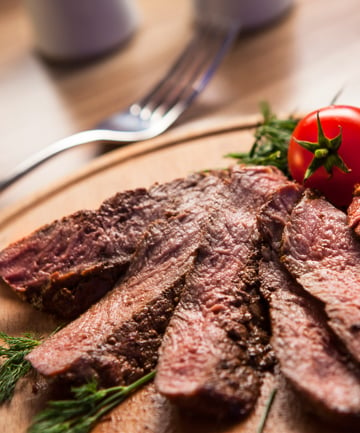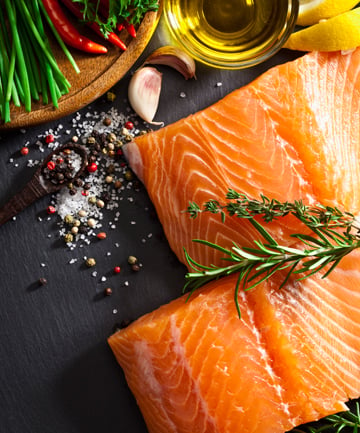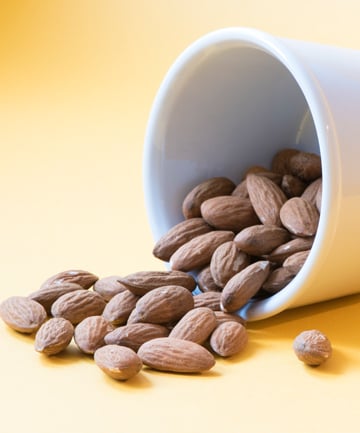Lean sources of protein, such as beef, pork, lamb and turkey, are a top source of the amino acid tryptophan, which helps produce serotonin to help boost your mood, says Toby Amidor, MS, RD and best-selling cookbook author of The Easy 5-Ingredient Healthy Cookbook. "Taking these foods out of your diet can minimize serotonin production, which is linked to depression," she adds. Additionally, protein helps keep you feeling satisfied and full for longer periods of time so you'll feel way less "hangry."
Image via Getty
Image via Getty
We know you hate to love them and that they're darn tasty but there's no getting around the downward mood spiral that's sure to ensue after wolfing down a McDonald's or Burger King burger. "Not only do blood sugar levels spike after eating fast food, thanks to their high saturated fat content, but they're also packed with sodium, which affects water retention, increases blood pressure and heart rate," explains Sherry Ross, MD, OB/GYN and Women's Health Expert at Providence Saint John's Health Center in Santa Monica, California. "Depression is more common in those eating fast food regularly."
Image via Getty
Image via Getty
There are countless health benefits that come from eating a diet rich in healthy fats, such as the kind found in your favorite seafood sources. "Specifically, tuna, salmon, mackerel and other fatty fish provide omega-3 fats, an essential fatty acid," explains Amidor. "Omega-3 helps regular brain chemicals, including dopamine, which the brain releases in response to positive, happy experiences and serotonin." Another reason to add omega-3s to your diet is that they reduce inflammation, which leads to an imbalance of flora in the intestines. "Symptoms, although not always apparent, can include bloating, diarrhea or painful digestion — the culmination of which is a real recipe for a bad mood," says Kimszal.
Image via Getty
Image via Getty
These two classic comfort foods might make us feel good in the moment but shortly after, we're bound for a crash. "Eating a diet high in white pasta and bread will cause a surge in blood sugar causing your pancreas to respond by producing insulin to help clear the sugar from your blood," says Jeanette Kimszal, RDN. "These carbohydrates make your body work harder to digest, leaving you feeling lethargic, prone to mood swings and less alert." Gotta have your carbs? Fill up on the complex kind — true whole grains and vegetables like quinoa or spaghetti squash, which contain fiber to slow digestion and keep your metabolism in check.
Image via Getty
Image via Getty
This all-important nutrient is responsible for many bodily functions, including regulating nerve function, maintaining blood sugar levels, making protein and ensuring that blood levels are stable. "Low levels of magnesium are associated with increased inflammation and oxidative stress, both of which are associated with depression," explains Alissa Rumsey MS, RD, founder of Alissa Rumsey Nutrition and Wellness and creator of the 5-Minute Mindful Eating Exercise. Eating enough magnesium from sources like quinoa, spinach, beans, pumpkin seeds, brazil nuts, almonds, cashews and flaxseed may help lower symptoms of anxiety and depression, she adds.
Image via Getty
Image via Getty









